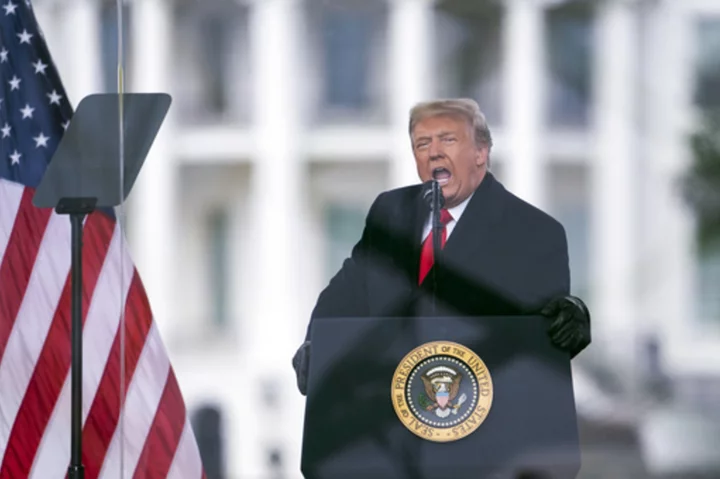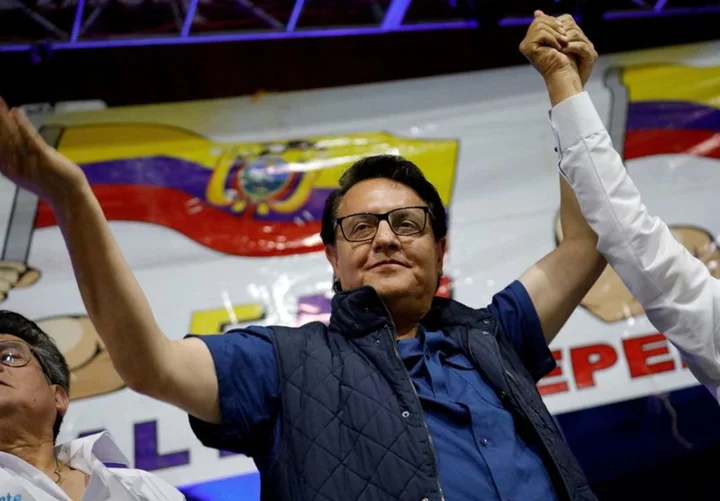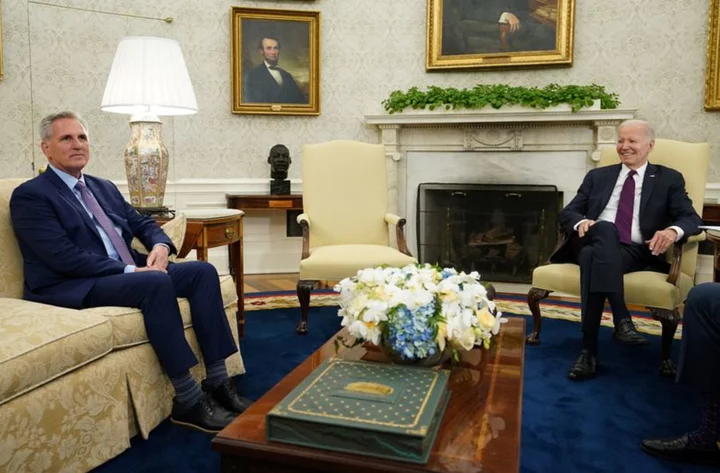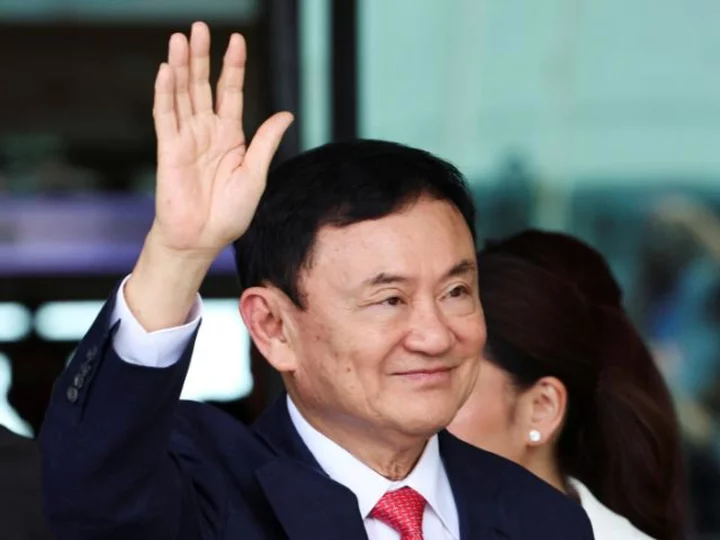WASHINGTON (AP) — Barack Obama, mindful of the urgent power of a president's words, liked to say he was guarded with his language because anything he said could send troops marching or markets tumbling.
His successor, Donald Trump, showed no such restraint.
Now Trump is facing dozens of criminal charges in four separate indictments, two ofthem anchored in the Republican's lie that he did not lose the 2020 presidential election to Democrat Joe Biden. And Trump's propensity for falsehoods and his right to utter them is at the core of his legal defense.
Though the U.S. presidency is vested with many overt powers, one of the most important is implicit — the power of rhetoric. It is used often as a call to action, to rally Americans for a mission abroad, to comfort a grieving public after tragedy or to sacrifice for a greater good.
“Scholars like me who study presidential rhetoric, presidential communication, they call it essentially a second Constitution,” said Jennifer Mercieca, a communications scholar at Texas A&M University. “Having presidents communicate directly to the public “changed the complete balance and separation of powers without having a new constitutional convention. It made the president the center of our political system.”
Trump, in effect, is arguing that his words as president carried no special force and he was simply exercising his free speech rights.
“Most presidents have a sense of the importance of language — of the written word, of the spoken word,” said Wayne Fields, a professor at Washington University in St. Louis and an expert on presidential rhetoric. “Some of them are not particularly good at it themselves, but they rarely are quite so dismissive of it as Trump has been.”
Lawyers for the former president, who now is facing criminal charges in courtrooms stretching from Miami to New York, have made clear that Trump's free speech rights will form the foundation of their defense in the Jan. 6 case. John Lauro, one of the lawyers, characterized to CNN that special counsel Jack Smith's case was “very, very unusual, outside-of-the-bounds criminal prosecution of First Amendment rights.”
But Smith anticipated that argument when he began to outline Trump's alleged wrongdoing in the federal indictment over Trump's culpability in the Capitol riot. On the second page of the document, prosecutors stressed that Trump was free to, essentially, lie: “The defendant had a right, like every American, to speak publicly about the election and even to claim, falsely, that there had been outcome-determinative fraud during the election and that he had won.”
Instead, Smith argued in the indictment, it is Trump's conduct, not merely his words, that constituted prosecutable offenses.
That distinction could prove critical given that Trump abandoned so many of the basic tenets of presidential communication during his time in office.
“An incorrect phrasing or an offhand comment can move markets or make the phone lines at the State Department blow up. This is really the first thing you learn when you come to the White House,” said Dan Pfeiffer, Obama's White House communications director. “Anything out of the president’s mouth or even a tweet from the White House account has tremendous power.”
That level of language discipline, Pfeiffer said, “was a huge transition from the campaign for Obama and all of us.”
It's hard to deny how powerful a president's direct words can be, although that was not always the case. Mercieca said until the early 20th century, presidents rarely spoke to the public. A leader's comments were primarily intergovernmental and often done in written form.
But that began to change with President Theodore Roosevelt, as well as President Woodrow Wilson, who revived the practice of delivering the annual State of the Union in person to Congress after more than a century of presidents sending lawmakers a written update. The explosion in direct contact between presidents and the public shifted the center of political gravity to the White House, supplanting Congress's role as a direct representative of voters.
“I think that the bully pulpit is one of the more unique tools that is available to a president that other branches of government or government officials can’t utilize in the same way,” presidential historian Lindsay Chervinsky said. “Because it is a powerful tool, presidents have to wield it carefully and with great thought and intention.”
Fields said President Dwight Eisenhower paid special care to how his words were being translated abroad, as did President Ronald Reagan, whose speechwriters were well aware how his rhetoric was being heard in the former Soviet Union. Domestically, Roosevelt used his platform to push his environment and conservation agenda. President Franklin Delano Roosevelt later used his trademark fireside chats to communicate with an anxious public through the Great Depression and World War II.
Then there was Trump.
His presidential rhetoric was riddled with thousands of falsehoods — some benign, many serious, so many of them repeated. He would be prone to vulgar name-calling and derision of political opponents. And on Jan. 6, 2021, Trump used the language of battle in ways difficult to ignore. In testimony before the House's Jan. 6 committee last year, Mercieca noted that Trump invoked the word “fight” 20 times in his speech at the Ellipse near the White House just before the riot, while using the word “peacefully” just once.
The federal charges against Trump focus on his actions — namely, that he wasn’t charged with incitement, which takes the issue of his speech off the table, according to legal experts.
“He’s allowed to lie. That’s not the conduct that’s charged. What’s important is what the indictment says he did,” said Carrie Cordero, senior fellow and general counsel at Center for a New American Security and a former Justice Department official. “And what he did was try to use — try to corrupt, really — different institutions of government in furtherance of the conspiracy to defraud the United States ... to try to prevent the election outcome.”
But as he seeks to regain the White House, Trump's election lies and relitigation of the 2020 election are playing a starring role in the Republican presidential primaries, and those claims have taken deep root within the GOP, despite all evidence to the contrary. A poll from The Associated Press-NORC Center for Public Affairs Research conducted Aug. 10 to Aug. 14 found that 57 percent of Republicans say Biden's election was not legitimate.
Trump "has a very canny read of his supporters and how his language affects his supporters,” Chervinsky said. “I think some of it is intentional. I think some of it is gut instinct.”









